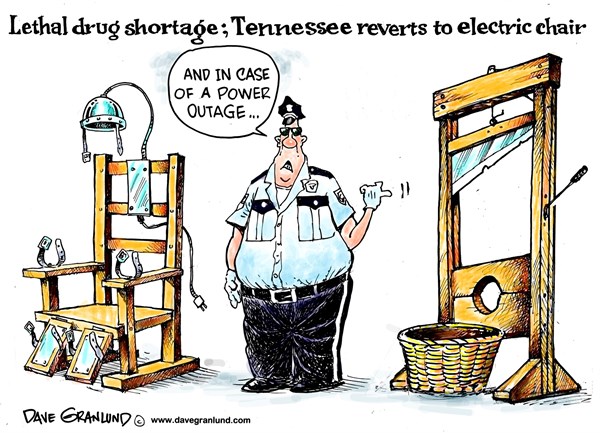Source: Baltzell, George W. Constitution for the United States.

IBagley, Pat. “Utah Firing Squad.” The Salt Lake Tribune, 2015.
"The Eighth Amendment forbids 'cruel and unusual' methods of capital punishment but does not guarantee a prisoner a painless death."
~ Justice Neil Gorsuch, 2019

Nott, Dan. “Cruel and Unusual.” Dan Nott Cartoons and Illustrations.

Granlund, Dave. “Lethal Drug Shortage; Tennessee Reverts to Electric Chair.”
"It is sometimes necessary to hang a man... But are we in the future to prevented from inflicting these punishments because they are cruel? If a more lenient mode of correcting vice and deterring others from the commission of it would be invented, it would be very prudent in the Legislature to adopt it; but until we have some security that this will be done, we ought not to be restrained from making necessary laws by any declaration of this kind."
~ Samuel Livermore, 1789